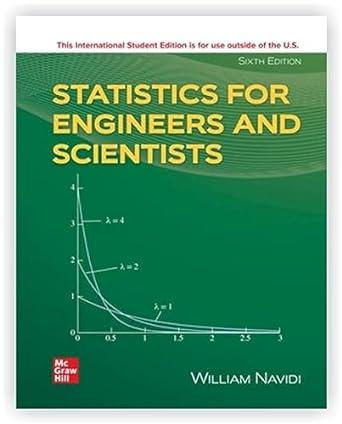The period (T) of a simple pendulum is given by (T=) (2 pi sqrt{L / g}) where
Question:
The period \(T\) of a simple pendulum is given by \(T=\) \(2 \pi \sqrt{L / g}\) where \(L\) is the length of the pendulum and \(g\) is the acceleration due to gravity. Assume that \(g=\) \(9.80 \mathrm{~m} / \mathrm{s}^{2}\) exactly, and that \(L\), in meters, is lognormal with parameters \(\mu_{L}=0.7\) and \(\sigma_{L}^{2}=0.05\).
a. Show that \(T\) is lognormally distributed, and compute the parameters \(\mu_{T}\) and \(\sigma_{T}^{2}\). (Hint: \(\ln T=\) \(0.5 \ln L+\ln 2 \pi-0.5 \ln g\).)
b. Find \(P(T>3)\).
c. Find \(P(1.5 d. Find the mean of \(T\). e. Find the median of \(T\). f. Find the standard deviation of \(T\). g. Find the 15 th percentile of \(T\). h. Find the 85th percentile of \(T\).
Step by Step Answer:






